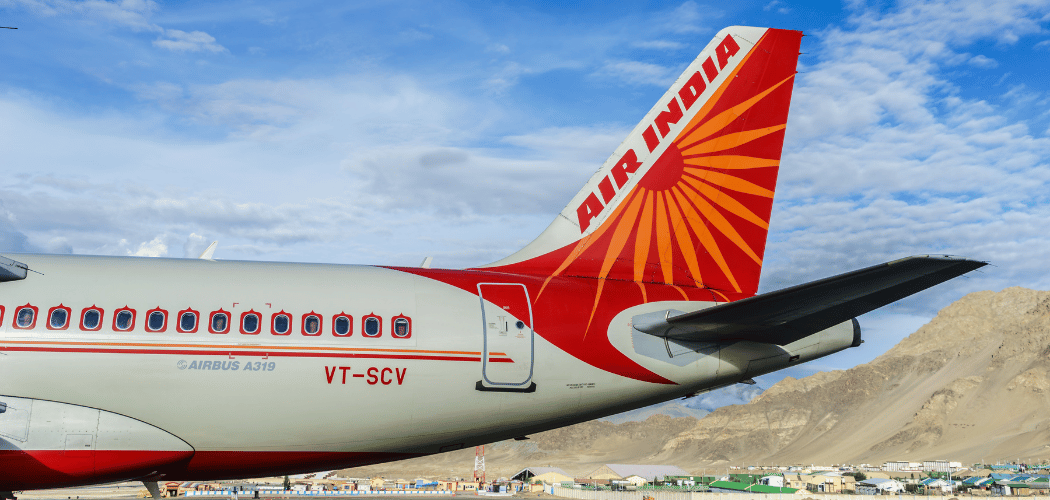An interview about the future of the Airline Industry with Ravindra Bhagwanani of Global Flight
The Wise Marketer is surveying the airline and travel industry throughout this coming month to determine possible future outcomes. Travel and hospitality were two of the business sectors most severely impacted by the COVID-19 pandemic and we have been saddened to see the hardship absorbed by the companies and people that make the world turn in the air and on the ground.
Applying our ever-present optimistic point of view, we believe that the greatest opportunities can be found during chaos and change. The challenges presented to this industry required quick responses from industry executives but also thoughtful application of new strategies and tactics that will lift airlines to success as the world returns to a more familiar environment.
We wanted to get a global perspective on the future of the airline industry and landed an interview with Ravindra Bhagwanani, Managing Director of Global Flight, a loyalty consultancy and organizer of the annual Loyalty & Awards conference, based in Toulouse, France. Ravindra shares some candid thoughts on how the airline industry will evolve as well as what changes might be visible to the flying public.
Wise Marketer (WM): The travel industry, airlines in particular, was one of the hardest hit by the pandemic. Looking at where we stand today, how long do you think it will take for meaningful recovery to occur?
Ravindra Bhagwanani (RB): We have heard so many different predictions, but what really matters now is to understand that things are starting to go in the right direction again. The mix of vaccinations and wide-spread testing will lead to an ease of travel restrictions and, more importantly, to a change in the public perception that travelling is, in fact, the safest it’s ever been. We are headed for an upturn in activity, and the focus of loyalty marketers needs to be on securing the highest share of the available market, knowing that the market might be below 2019 levels for an extended time.
WM: Every airline and hotelier had to make rapid adjustments in response to the pandemic. What are the most memorable changes to frequent flyer (FFP) programs that you recall from 2020?
RB: Interestingly enough, you could say everything. On the positive side, you had airlines like Qatar Airways cancelling recent program devaluations. We also witnessed a situation where airlines apparently benefitted so much from generous government bailouts, the US carriers are a good example, that they didn’t need to make much effort for their frequent flyers and pushed through some program devaluations during the pandemic. Finally, we saw airlines like Lufthansa showing little empathy for the reality of millions of members with expiring miles, telling them they could extend the validity of miles by paying a fee. Many airlines showed their true face of how they view customers — in both positive and negative ways — and I guess many customers will redefine their relationships based on the experiences they've had during this period.
WM: The airlines centered many announcements on the cabin experience, trying to win back travelers. Airport check-in procedures, cabin cleaning, seating arrangements, and food service were among the most visible. What part of the changes made will become a permanent part of “how we fly” versus those that were necessary as a response to the pandemic?
RB: Overall, I'd expect a new focus on the customer experience and an enhancement of services as the fight for customers in an overall smaller market will become tougher. Additionally, the airlines will maintain anything that helps them to save costs, but nothing that adds costs. As such, the crisis will certainly have helped to accelerate developments such as contactless and digitalized experiences, which started before the crisis, but were sometimes lacking momentum.
WM: What did you learn about what the flying public wants from the airline industry in the future?
RB: My personal view is that the whole industry made one huge mistake early in the crisis and maintains it until now; they've adjusted their product and procedures to meet the needs of the majority of infrequent flyers, who only generate a small portion of overall revenue. Most frequent flyers I know only want one thing: a return to the old normal. Frequent travelers are well aware there is always a certain level of risk related to travel you cannot completely exclude. Experienced travelers are used to that and willing to cope with it. Nobody expects the underground in Paris to shut down because there are pickpockets there, but travelers are expected to follow certain common-sense principles. It is now an academic discussion, but probably most of the industry could have been saved if everybody had agreed on such behaviour from the beginning.
Since the industry missed that point, all players are now faced with the phenomena that, at least for now, the former frequent flyers have mostly disappeared, and a new target group of infrequent travelers has emerged. Loyalty programs were never designed with that target group in mind, so they need to reinvent themselves and discover things such as how to engage infrequent travelers — a pretty new field for most. It can only be hoped for that such lessons learned will continue to be applied once the traditional frequent travelers will return. There are some low-hanging revenue fruits in here for most programs.
Overall, it continues to be shocking to see how little most airlines really understand about engaging customers. For instance, Turkish Airlines started to send me reminders about miles expiring on 31 December. As I had quite a substantial number of miles I didn't want to lose, I was forced to use them for booking an award flight next summer, despite uncertainties in the current conditions. It was only after I had redeemed my expiring miles that I received a notification from the program on 31 December informing me that they had decided to suspend the expiration of these miles. This was clearly not the best approach to engender loyalty from your members.
WM: What new types of benefits do you think airlines could incorporate into their FFP’s in the future? How should these programs change in the future?
RB: I am too conservative for that question; the only reason to be member in a frequent flyer program is to use miles for free travel or upgrades. Anything else might look good on paper but misses the point. The only advice I am having here for airlines is to avoid distractions and focus on the essential things. It is obvious that with a stronger focus on infrequent travelers, elements such as cash and miles will become more common place. But it will be important to provide a correct value proposition here — and anywhere else — since customers easily understand how honest airlines really are in their customer engagement strategy.
For instance, Aegean Airlines introduced a cash and miles option for its own flights during the pandemic — but at a very low redemption level of 0.3 EUR cents per mile. For spending 20,000 miles, you hence get a discount of 60 EUR. This doesn’t compare favorably to traditional flight redemptions fully paid by miles, where a customer can redeem 20,000 miles for a free roundtrip flight on most of Aegean's network. The cash and miles offering was weak and sends out the wrong message at the wrong time to members.
WM: I think it is fair to say that FFP’s have the most complex structure of any loyalty programs in the marketplace. Do you think the pandemic showed us that simplifying program structures could create more bond between customers and the airlines, or should formats stay pretty much the same?
RB: No, to the contrary: As all loyalty managers were sitting at home and had nothing to do, they've rather came up with new ideas to complicate things. While there were many airlines just extending the elite status by one-year, other airlines such as Qantas or Etihad came up with such complex formulas it took you indeed a 4-week lockdown to understand them. They certainly make more business sense than a straight 1-year extension, but does the added complexity really justify the incremental benefits?
WM: Do you think the airlines could use SMS, location based, or in app communications more to improve the travel experience? Who is already doing this well and what will the future hold for the airline industry?
RB: Absolutely, this is the future, and several suppliers are positioned well in that area. That is one of the areas where technology certainly helps to enhance the customer experiences. The PINS program was one of the early movers in the area, but many others are starting to get engaged at that level, though still mostly at limited scale.
WM: We’ve seen some airlines eliminating change fees. Southwest has traditionally differentiated by offering no fee for change of reservation. If the industry aligns to “no change fee”, what opportunity exists for one airline to differentiate from another?
RB: This is a purely a US issue since change fees will certainly return at wide scale to international markets. Everybody understands that a lower fare comes with certain restrictions and less flexibility.
For US carriers, the historical pattern is that airlines don't dare to differentiate strategically from each other, making the programs widely interchangeable. Differences play only in very limited areas and for specific cases. If you compare this to the FFPs of Lufthansa, Air France KLM, and British Airways in Europe however, you get the point. Three completely different programs manage to differentiate and are all successful in their own means.
While obviously not the largest program in the market, Alaska Airlines is nevertheless demonstrating in the US that such an approach could work as well, e.g., by not adopting a revenue basis. It remains to be seen how much of that differentiation they will dare to maintain as they move closer to American and join Oneworld.




